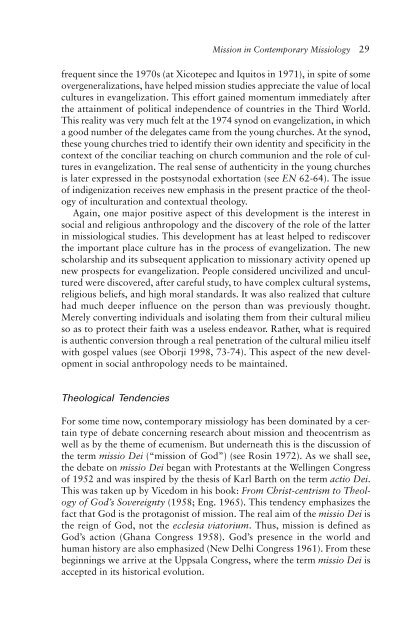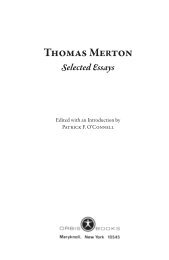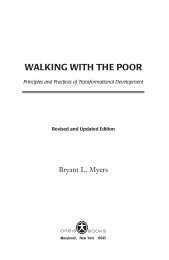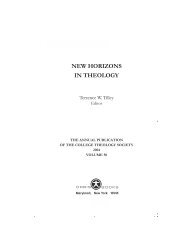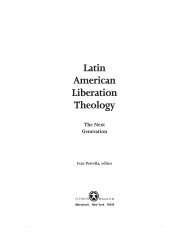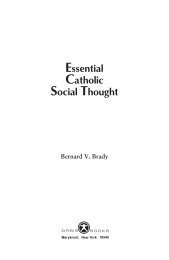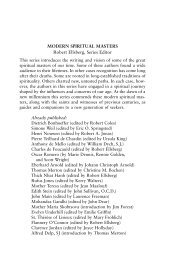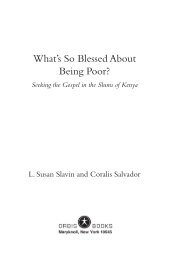CONCEPTS OF MISSION - Orbis Books
CONCEPTS OF MISSION - Orbis Books
CONCEPTS OF MISSION - Orbis Books
You also want an ePaper? Increase the reach of your titles
YUMPU automatically turns print PDFs into web optimized ePapers that Google loves.
Mission in Contemporary Missiology 29<br />
frequent since the 1970s (at Xicotepec and Iquitos in 1971), in spite of some<br />
overgeneralizations, have helped mission studies appreciate the value of local<br />
cultures in evangelization. This effort gained momentum immediately after<br />
the attainment of political independence of countries in the Third World.<br />
This reality was very much felt at the 1974 synod on evangelization, in which<br />
a good number of the delegates came from the young churches. At the synod,<br />
these young churches tried to identify their own identity and specificity in the<br />
context of the conciliar teaching on church communion and the role of cultures<br />
in evangelization. The real sense of authenticity in the young churches<br />
is later expressed in the postsynodal exhortation (see EN 62-64). The issue<br />
of indigenization receives new emphasis in the present practice of the theology<br />
of inculturation and contextual theology.<br />
Again, one major positive aspect of this development is the interest in<br />
social and religious anthropology and the discovery of the role of the latter<br />
in missiological studies. This development has at least helped to rediscover<br />
the important place culture has in the process of evangelization. The new<br />
scholarship and its subsequent application to missionary activity opened up<br />
new prospects for evangelization. People considered uncivilized and uncultured<br />
were discovered, after careful study, to have complex cultural systems,<br />
religious beliefs, and high moral standards. It was also realized that culture<br />
had much deeper influence on the person than was previously thought.<br />
Merely converting individuals and isolating them from their cultural milieu<br />
so as to protect their faith was a useless endeavor. Rather, what is required<br />
is authentic conversion through a real penetration of the cultural milieu itself<br />
with gospel values (see Oborji 1998, 73-74). This aspect of the new development<br />
in social anthropology needs to be maintained.<br />
Theological Tendencies<br />
For some time now, contemporary missiology has been dominated by a certain<br />
type of debate concerning research about mission and theocentrism as<br />
well as by the theme of ecumenism. But underneath this is the discussion of<br />
the term missio Dei (“mission of God”) (see Rosin 1972). As we shall see,<br />
the debate on missio Dei began with Protestants at the Wellingen Congress<br />
of 1952 and was inspired by the thesis of Karl Barth on the term actio Dei.<br />
This was taken up by Vicedom in his book: From Christ-centrism to Theology<br />
of God’s Sovereignty (1958; Eng. 1965). This tendency emphasizes the<br />
fact that God is the protagonist of mission. The real aim of the missio Dei is<br />
the reign of God, not the ecclesia viatorium. Thus, mission is defined as<br />
God’s action (Ghana Congress 1958). God’s presence in the world and<br />
human history are also emphasized (New Delhi Congress 1961). From these<br />
beginnings we arrive at the Uppsala Congress, where the term missio Dei is<br />
accepted in its historical evolution.


